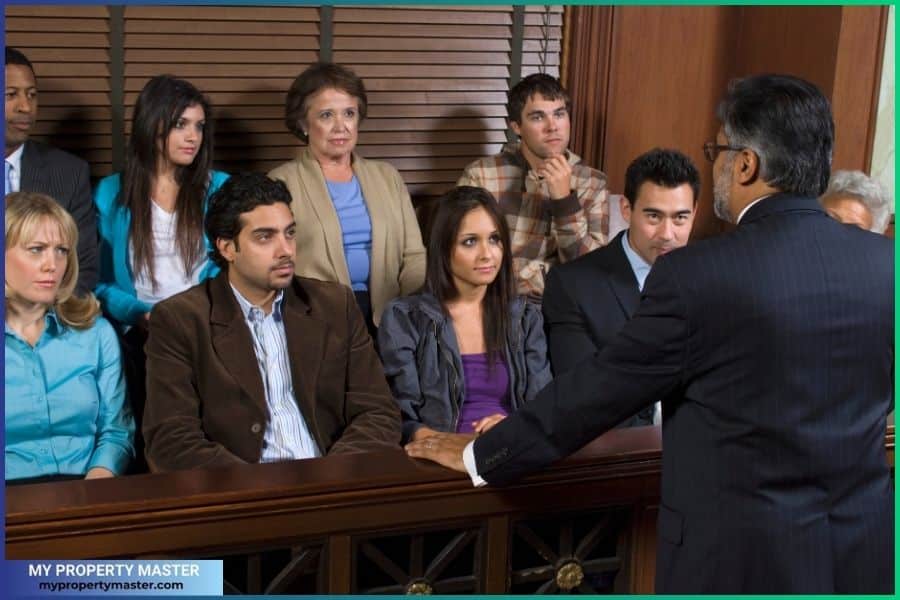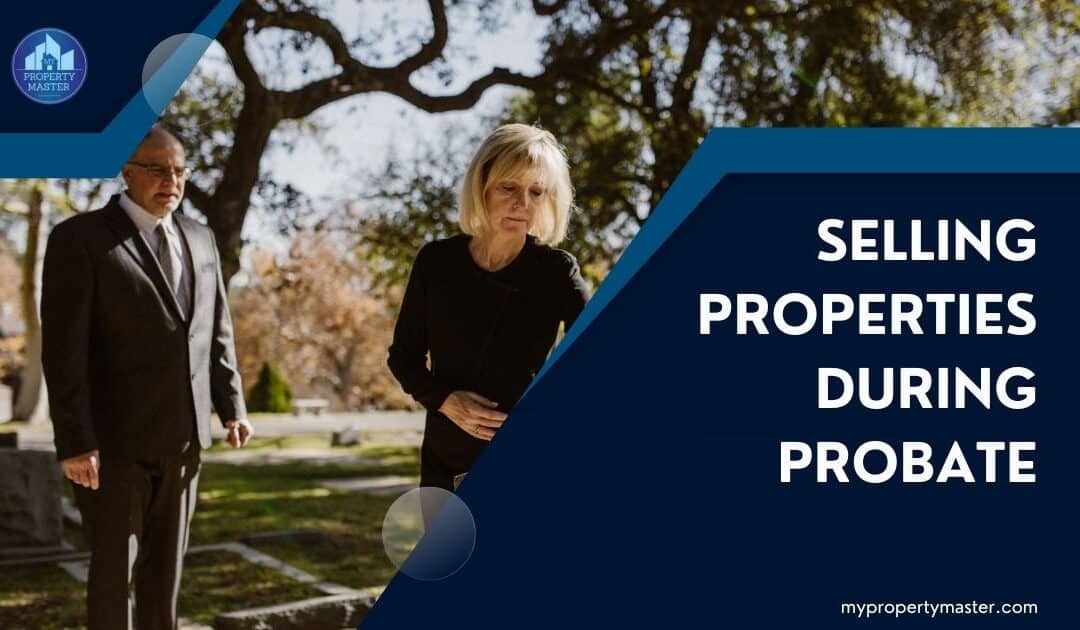Selling a house before probate can be challenging, and the ability depends on various factors. Probate can take time, and the duration varies based on the complexity of the estate, the presence of a valid will, and local laws.
Some assets may pass outside of probate, such as those held in joint tenancy, assets with designated beneficiaries (like life insurance policies), or assets held in a living trust.
This post will discuss probate and selling properties before the probate period ends. Also, I will answer some common questions related to this topic.
What is probate?

Before discussing further, you must understand the concept of probate.
It’s a legal process that takes place after someone passes away. It involves validating their will (if there is one) and distributing their assets to heirs and beneficiaries.
The court oversees the probate process to ensure paying accrued bills and distributing the remaining assets.
When a person dies, their estate (everything they own, like property, money, and possessions) goes through a legal process called probate.

If the person left a will, the court checks if it’s valid. The will usually names an executor (someone responsible for managing the estate) and outlines how the person wants their assets distributed.
If there’s no will, the court follows intestacy rules, which are legal guidelines determining how assets should be distributed among the surviving family members.
Read also: Essential things that landlords must know before selling a house.
Things to consider when selling a house during probate

It’s important to note that the probate process can involve legal fees and delays, and some people use estate planning tools (like trusts) to minimize probate’s impact on their assets and heirs.
Here are some important considerations:
Probate Process
During probate, the court validates the will (if there is one) and values the assets.
The court pays debts and taxes from the assets. After paying those, the remaining assets are distributed to the heirs or beneficiaries.
Read also: How can you sell a house with a mortgage?
Ownership During Probate
Until the probate process is complete, the legal ownership of the property may be in the hands of the deceased person’s estate. This can limit the ability to sell the property, as the executor or administrator of the estate typically has the authority to handle such matters.
Read also: The most common landlord-tenancy problems and their solutions.
If there is a valid will and an appointed executor, the executor may have the authority to sell the property before probate is complete, but this authority can vary.
Read also: What are condo fees and HOA fees?

Court Approval
In some cases, the sale of a property during probate may require court approval. The court must ensure the sale is in the estate’s and its beneficiaries’ best interest.
Read also: Who pays the rental broker fee?
Communication with Heirs
If there are multiple heirs or beneficiaries, it’s essential to communicate with them and obtain their consent or approval before selling the property, especially if it’s done before the completion of probate.
Read also: What does a private landlord mean?
Legal Advice
Seek legal advice from a probate attorney. Laws regarding probate and property transactions can vary significantly by jurisdiction, and an attorney can provide guidance specific to your situation.
Read also: When do landlords have to turn the heat on?
Buyer Considerations
Prospective buyers may be demotivated to purchase a property involved in the probate process due to uncertainties and potential delays. This could affect the marketability of the property.
Even the price may be comparatively lower than usual.
Read also: Can a landlord raise my rent by $300?
Probate Sale Requirements
Some jurisdictions have specific requirements for selling property during probate, such as obtaining court approval, providing notice to interested parties, or following a particular procedure. It’s essential to be aware of and comply with these requirements.
Before attempting to sell a property before probate is complete, it’s important to consult with a probate attorney. You must understand the legal implications, requirements, and potential challenges of such a transaction.
Additionally, involving all relevant parties and obtaining court approval, if necessary, can help ensure a smoother and legally compliant process.
Read also: How to clean a rental property before showing it to tenants?
Can executors withhold money from beneficiaries?

An executor’s role is to manage a deceased person’s estate and distribute the assets.
It is not within the legal authority of the executor to arbitrarily withhold money from a beneficiary without proper justification.
However, there are certain situations where funds may be temporarily withheld or delayed for valid reasons, such as:
- Outstanding Debts and Expenses: The executor must ensure that any outstanding debts, taxes, and administrative expenses of the estate are settled before distributing assets to beneficiaries. This may require holding funds temporarily to cover these obligations.
- Legal Disputes or Challenges: If there are legal disputes to the will, the executor may need to withhold distribution until the court resolves these matters.
- Insufficient Funds: Sometimes, the estate may not cover all debts and expenses. The executor may need to manage the available funds judiciously and make fair distributions.
- Pending Probate Process: While the probate process is ongoing, the executor may need to manage and protect the estate assets. Distribution may be delayed until the court approves the final distribution plan.
It’s important to note that any withholding of funds by the executor must be done transparently, following the law, and communicating clearly to the beneficiaries.
Executors are legally obligated to provide an accounting of the estate’s financial transactions.
Read also: What is a good return (ROI) on a rental property?
Do all beneficiaries have to agree to sell property?

Whether all heirs must agree to sell property depends on the legal framework in place and the specific circumstances surrounding the property and the estate. Here are some common scenarios:
- Joint Ownership with Right of Survivorship: If the property is owned jointly, the surviving owner(s) may have the authority to sell the property without the consent of other heirs.
- Tenancy in Common: It’s not like one person owns the kitchen, another the living room, etc. Instead, each person has a percentage of the entire house. In such cases, the consent of all owners may be required to sell the property. If one owner wishes to sell, and the others do not agree, they may explore legal options, such as a partition action, to force the sale. Also, the person can do different things with his share. He could sell it, give it to someone, or even leave it to his family. Each person’s share is independent of the others.
- Will or Trust Provision: The deceased person’s will or trust may dictate how the property should be handled. If the will or trust specifies that the property should be sold and outlines the process, the executor or trustee may proceed with the sale according to those instructions.
- Probate Laws and Court Approval: In the probate process, the court may oversee the sale of estate assets, including real property. The executor may need court approval to sell the property, and the court may consider the interests of all heirs involved.
- Agreement Among Heirs: In some cases, even if legal requirements allow for a sale without unanimous consent, heirs may agree to ensure a smooth and cooperative process.
It’s essential to consult with legal professionals, such as estate attorneys when dealing with the sale of inherited property. If disputes arise among heirs, legal advice can help navigate potential challenges and ensure compliance with relevant laws and regulations.
Read also: Key considerations for landlords when renting a house with a swimming pool.
Wrap up
Selling a house before probate presents challenges that hinge on various factors. While some assets may bypass probate, navigating the sale of a property involves careful consideration of legal aspects.
This blog post has shed light on the probate process, discussed considerations when selling a house during probate, and explored the role of executors in managing estate funds.
Lastly, I would not suggest selling a house or any properties until the probate period ends. You may have urgency, or you need money within a short time. However, if you bypass probate, you may not fall into legal issues. Also, you may receive a significantly lower price than usual because genuine buyers will try to avoid those legal hassles and challenges in the future.






